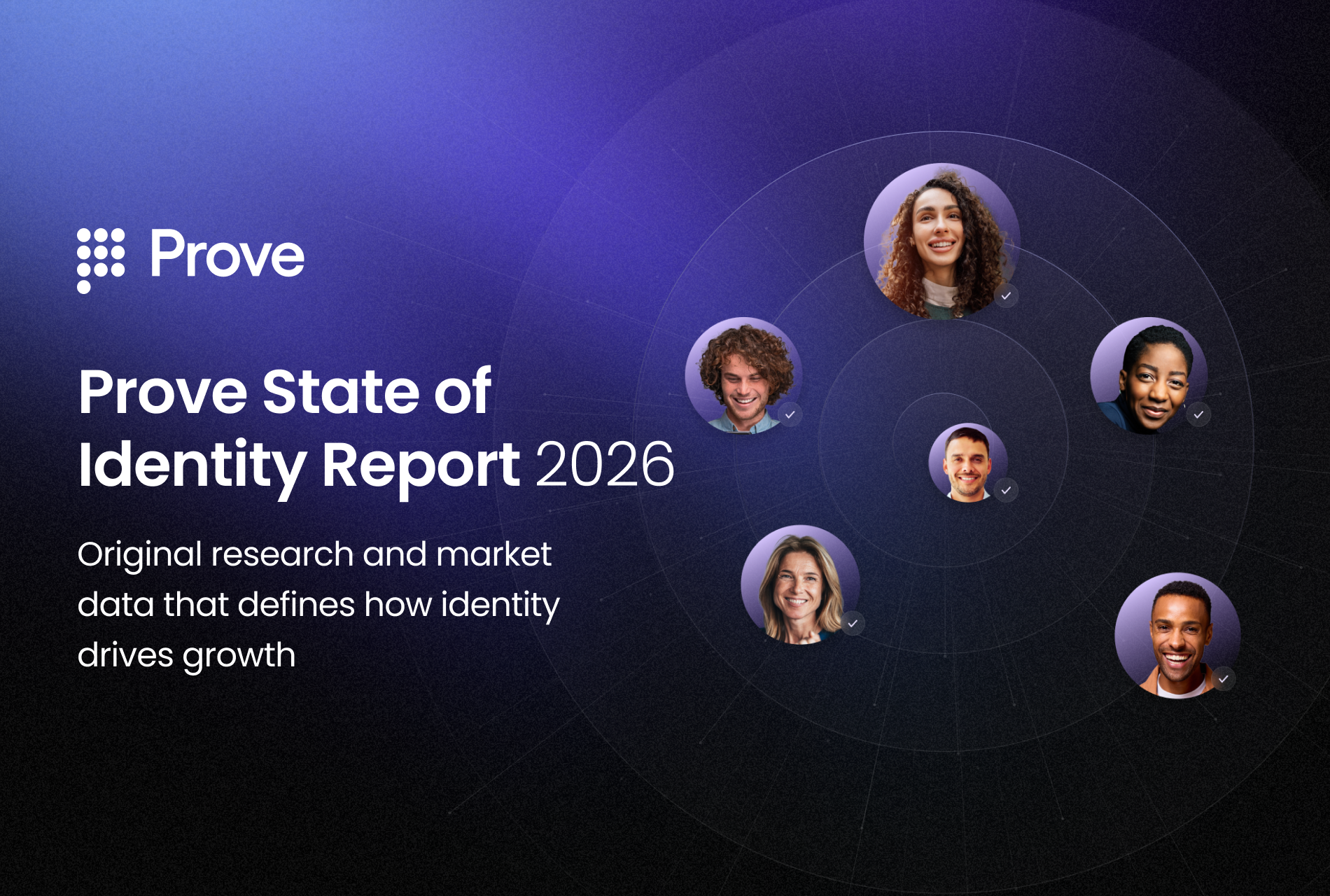How Identity Verification is Driving Better Onboarding and Customer Enablement


The stakes for businesses in ensuring trust and security in digital interactions are higher than ever. With criminals leveraging advanced technologies to perpetrate identity fraud, the challenge of authenticating individuals and safeguarding sensitive information has become a top priority across all industries. For experts in identity verification, fraud mitigation, and customer experience, it's crucial to understand the shifting dynamics of this landscape and adopt innovative strategies to stay ahead of emerging threats.
While technology approaches change, there are key themes that are clearly reshaping the industry, including the rapidly dominant impact of AI, the transformation of customer expectations, and the pivotal role of smartphone data in revolutionizing identity verification. Let’s look more closely at these trends:
Meeting Changing Customer Expectations with Effective Identity Verification
Customer expectations are changing. Fast. In today's digital world, consumers demand instant gratification, personalized experiences, and, above all, security. This has huge implications for how businesses approach customer onboarding and engagement across their digital platforms.
Think about it: gone are the days of filling out lengthy paper forms or waiting weeks for account approval. Modern consumers expect to sign up, access services, and complete transactions with just a few clicks, whether they're shopping online, accessing healthcare portals, or managing finances.
Balancing Customer Needs and Identity Accuracy
This need for speed, however, can't come at the cost of security. Data breaches and identity theft are rampant, making consumers increasingly wary of sharing their personal information.
So, how can businesses meet these seemingly conflicting demands? The answer lies in effective and accurate identity verification solutions that allows companies to:
- Accelerate onboarding: Automated solutions can verify identities in real-time, eliminating manual processes and reducing friction for new customers.
- Enhance the customer experience: A smooth and efficient customer onboarding process creates a positive first impression and builds trust with customers.
- Reduce fraud: Advanced verification methods, like facial recognition and document authentication, help weed out fraudulent accounts and protect both the business and the consumer.
- Attract and retain high-value customers: By offering a secure and user-friendly platform, businesses can attract and retain customers who prioritize security and convenience.
Meeting the evolving expectations of digital consumers requires a commitment to both speed and security. By implementing effective identity verification solutions, businesses can create a seamless and secure onboarding experience that attracts and retains valuable customers while mitigating fraud.
Leveraging the Power of Smartphone Data for Identity Verification
One of the most promising innovations in identity verification is the utilization of smartphone data as a primary verification method. We have seen the effectiveness of deterministic methods over probabilistic ones, using phone numbers and associated metadata as a robust means of verifying identities. By leveraging smartphone data, organizations can validate the authenticity of customers with unprecedented accuracy, making it exceedingly difficult for fraudsters to impersonate others.
The Implications of AI-Powered Fraud
While AI holds immense potential for enhancing security measures, it also presents new challenges in the form of AI-powered fraud. There are widespread, and legitimate, concerns about the ability of AI-driven attackers to convincingly replicate human interactions and personal details, potentially bypassing conventional security measures. To counteract this threat, we advocate for deterministic approaches that rely on cryptographic keys and direct authentication linked to immutable data points like phone numbers.
Securing Data and Digital Identities in the Face of Increasing Threats
In an era marked by rampant data breaches and identity theft, protecting sensitive information is among the top priorities of every organization. It is important to compartmentalize and separate critical security functions to safeguard data and digital identities. By employing dedicated phone numbers for two-factor authentication (2FA) and choosing carriers without call centers, individuals can minimize the risk of SIM swapping and other forms of identity theft.
Deepfakes and Imposter Scams: Enhancing Business Trust and Security
In addition to the challenges posed by traditional identity fraud, businesses are increasingly confronted with sophisticated threats such as deepfakes and imposter scams. Criminals are leveraging artificial intelligence to create convincing replicas of corporate executives, vendors, and employees, making it challenging to discern genuine interactions in the digital realm.
It’s quite clear that there is an urgent need for businesses to bolster their authentication methods in response to these evolving threats. Deepfakes represent a growing menace, with the potential to deceive even the most discerning individuals. We know that using individual’s smartphones as the foundation of identity verification, we can employ cryptographic signatures tied to mobile devices to authenticate interactions effectively.
Addressing the Rise of Business Identity Fraud
The proliferation of business identity fraud poses a significant risk to organizations across all sectors. Imposter scams remain a top fraud category, resulting in substantial financial losses and reputational damage. Major breaches, such as the hack into Change Healthcare, have provided fraudsters with access to transactional data, enabling them to orchestrate sophisticated impersonation schemes and synthetic identity fraud.
Organizations need to implement automated authentication solutions to mitigate the risk of business identity fraud. By leveraging cryptographic signatures tied to mobile devices, businesses can establish a secure digital front door that keeps bad actors at bay while facilitating seamless interactions for legitimate stakeholders.
Embracing Cryptographic Signatures for Enhanced Security
Ultimately, organizations will need solutions that are relatively simple to implement, introduce minimal friction, and are effective. Cryptographic signatures achieve these goals and are already operating as a cornerstone of modern authentication practices. These signatures, tied to mobile devices and supported by some identity verification platforms, provide a robust framework for verifying the authenticity of interactions across various channels. Whether it's a tweet, bot interaction, or invoice, cryptographic signatures enable organizations to authenticate counterparties seamlessly, thereby minimizing the risk of fraud and enhancing trust in digital transactions.
Building a Strong Digital Front Door: The Key to Trust and Security
Establishing a strong digital front door is essential for protecting sensitive information and maintaining trust with customers and partners. By enrolling phone numbers and devices of trusted parties, organizations can automate the authentication process, enabling seamless and secure interactions. This level of automation not only enhances security but also streamlines operations, providing a frictionless experience for legitimate stakeholders while keeping bad actors at bay.
Paving the Way for a Secure and Trusted Digital Ecosystem
As the landscape of identity verification and fraud mitigation continues to evolve, staying abreast of emerging trends and technologies is essential for organizations to address fraud before it becomes a problem.
Risks to organizations will not go away any time soon, but identity verification and fraud mitigation technology is increasingly getting ahead of the efforts of fraudsters. It's essential to embrace innovative strategies and technologies to stay ahead of emerging threats. By leveraging advancements in identity verification, such as smartphone data authentication and cryptographic signatures, organizations can fortify their security measures while delivering seamless customer experiences.

Keep reading
 Read the article: How Prove’s Global Fraud Policy Stops Phone-Based Fraud Others Miss
Read the article: How Prove’s Global Fraud Policy Stops Phone-Based Fraud Others MissLearn how Prove’s Global Fraud Policy (GFP) uses an adaptive, always-on engine to detect modern phone-based threats like recycled number fraud and eSIM abuse. Discover how organizations can secure account openings and recoveries without increasing user friction.
 Read the article: Prove Supports Safer Internet Day: Championing a Safer, More Trustworthy Digital World
Read the article: Prove Supports Safer Internet Day: Championing a Safer, More Trustworthy Digital WorldProve proudly supports the goals and initiatives behind Safer Internet Day, a worldwide effort that brings together individuals, organizations, educators, governments, and businesses to promote the safe and positive use of digital technology for all, especially young people and vulnerable users.
 Read the article: Prove’s State of Identity Report Highlights the New Rules of Digital Trust
Read the article: Prove’s State of Identity Report Highlights the New Rules of Digital TrustProve’s State of Identity Report explores why traditional point-in-time verification is failing and how businesses can transition to a continuous, persistent identity model to reduce fraud and improve user experience.












